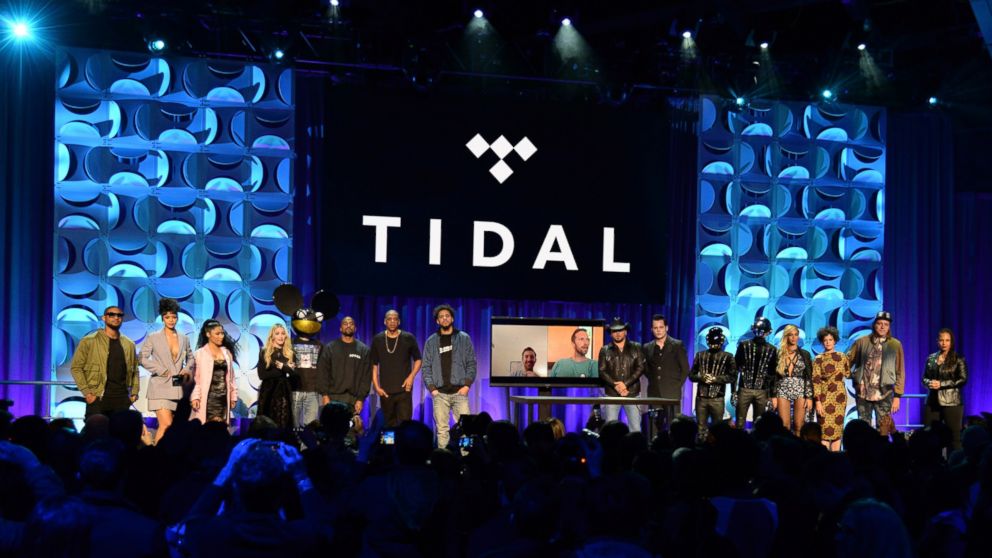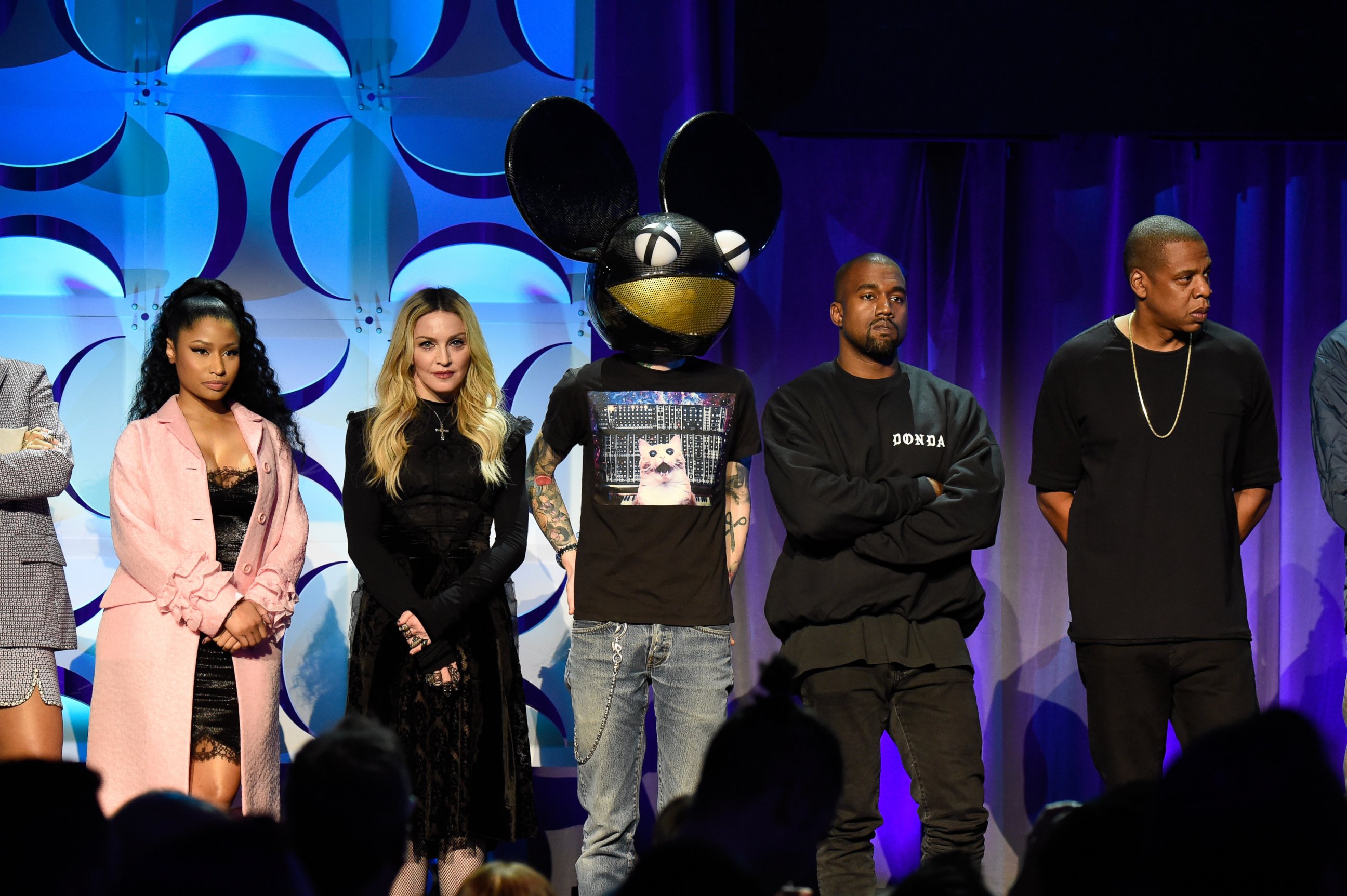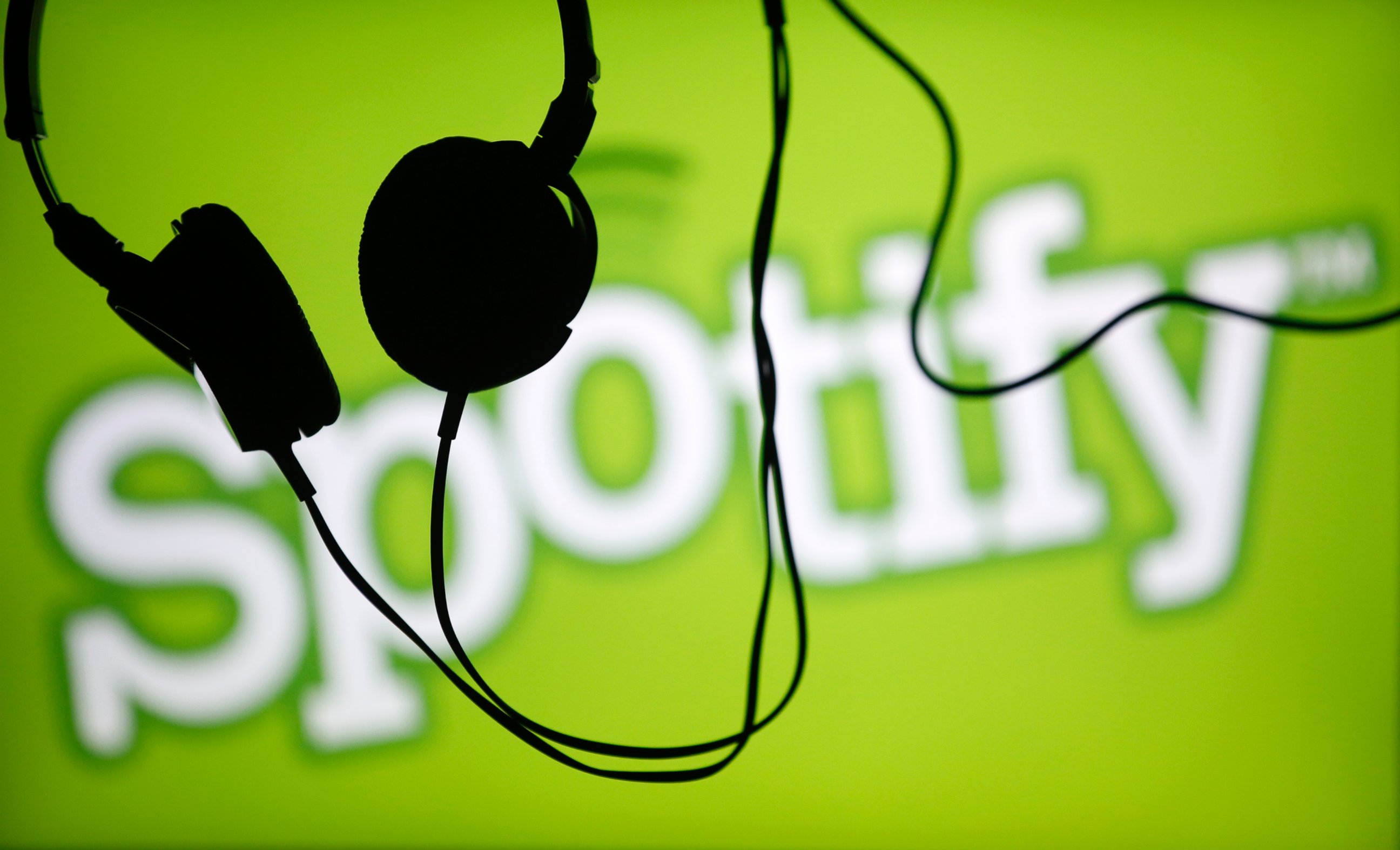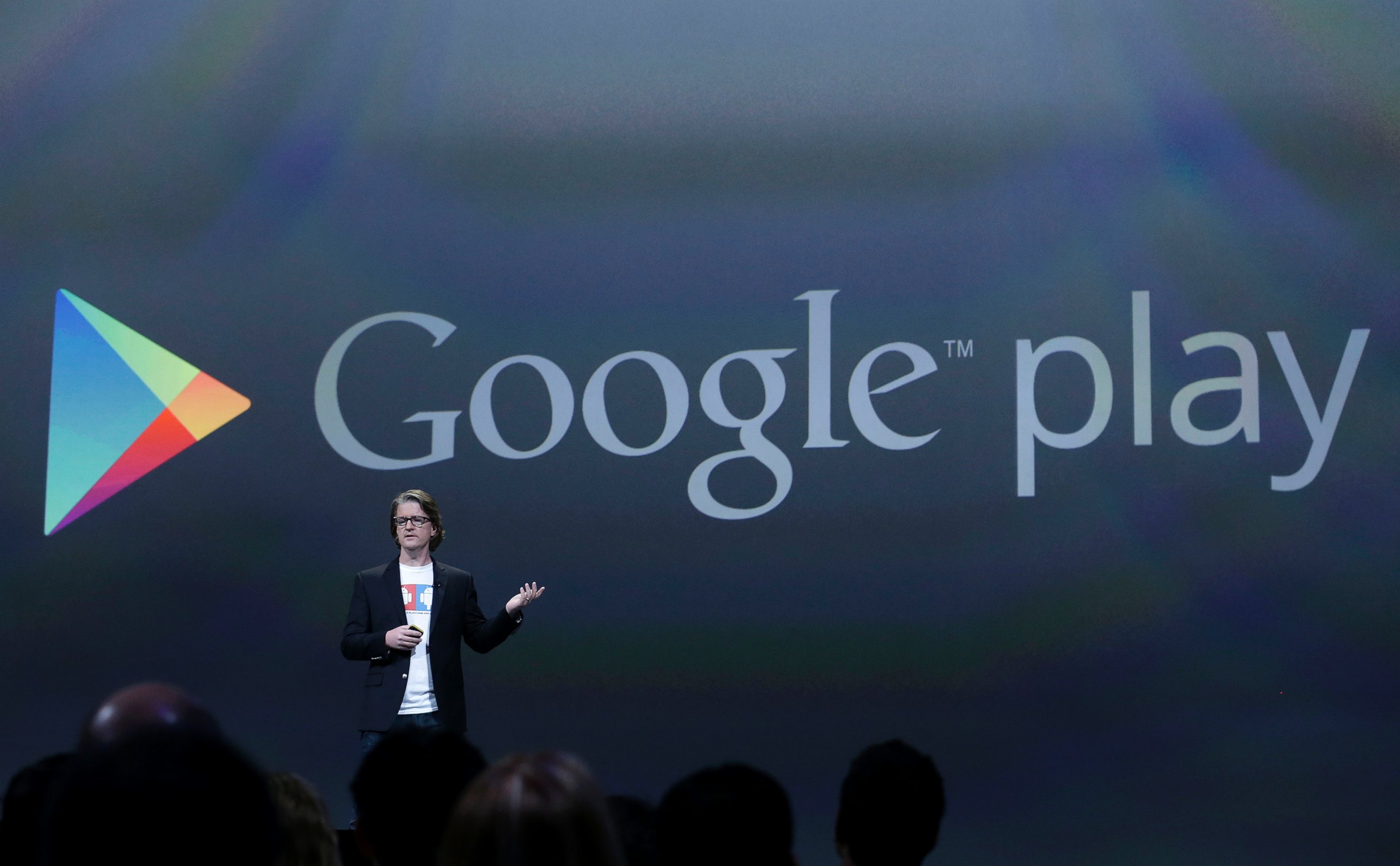Why Musicians Who Sign Up With Jay Z's Tidal Probably Won't Earn More, Yet
Jay Z touts his music service as an antidote to the existing business model.

— -- Signing up with Jay Z's new music streaming service, touted as a platform "owned by artists," may be more of a symbolic gesture for artists for now, and they're unlikely to get a bigger slice of the digital music money pie immediately, an industry expert said.
Tidal, Jay Z's "high fidelity" music streaming service, will pay musicians a small royalty each time a song is listened to, much like competitors Pandora and Spotify. Vania Schlogel, an executive with Tidal, declined to share the company's compensation rates but told the New York Times that it would be higher than services that have free tiers supported by advertising.
Gregory Barnes, general counsel for the Digital Media Association, told ABC News that whether or not musicians will make any substantial money at all will depend on whether customers will actually sign up for the pay-only service: $9.99 a month for standard sound quality or $19.99 for high fidelity.

"The notion they will get subscribers to pay $20 a month for high fidelity is highly unlikely," said Barnes, whose trade group represents 9 companies that sell digital media, including Apple, Amazon.com, Microsoft, Pandora, Slacker, Sony, Google/YouTube, Live365 and Rhapsody.
Spotify estimates that 70 percent of its revenue goes to "rights holders," which includes not only the musicians, but publishers, distributors and songwriters. Based in Sweden and among the largest of the streaming services, Spotify says it has over 15 million paying customers and over 60 million active users. Tidal's parent company, the Swedish technology firm Aspiro, said it had 503,000 paying users as of January. Earlier this month, Jay Z bought more than 90 percent of Aspiro for about $56 million, his companies Project Panther Bidco and Roc Nation said.

"When you look at [Tidal's] particular business models, [Jay Z's] business model doesn't differ dramatically from what's already out there," said Barnes. Though in addition to listening to music, Tidal will perhaps offer a more "immersive experience," with more artist content, such as behind-the-scenes videos and stories behind the albums, Barnes said.
Schlogel told the Times that a majority of Tidal company shares would be set aside for artists, but declined to give specifics. Though some artists may have ownership in Tidal, their record labels will still dictate the terms in which their recordings are sold, Barnes said. The master recording copyright is typically owned by the record label and recording artist; while the composition copyright is often owned by the songwriter and music publisher.
Tidal says it has agreements with "all major record companies, Universal, Warner and Sony, as well as many of the smaller independent companies," according to its website.

Tidal did not respond to a request from ABC News for comment.
Bryan Vaughan, founder of Brooklyn's independent Paper Garden Records, said he is interested in exploring new streaming services such as Tidal.
Here's how much Paper Garden Records artists can get from Spotify, based on the label's 50-50 split with musicians:
5,500 streams = $30 revenue
Minus 20 percent distribution fee = $24 (paid to label)
Label then pays 50 percent of the $24 to artist
TOTAL artist payment on 5,500 streams = $12
The major labels and some larger independent labels get an advance from Spotify upon releasing their music with the service, he noted, "So it's rare that an artist gets paid directly from Spotify." Instead, many artists will receive a percentage from their distributors.
"Essentially it's up to the labels to properly distribute and sort out how much of that advance they want going to which artists," Vaughan said.




